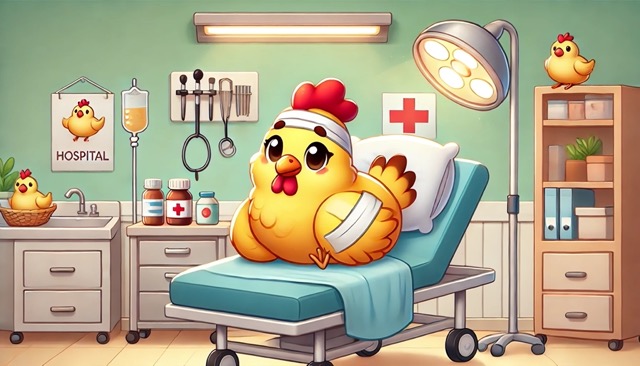Chicken First Aid Essentials
What to put in a chicken first aid kit
Even healthy, happy chickens need a little TLC from time to time, so a first aid kit is essential! Here are the must-haves for a chicken first aid kit:
1. Wound Treatment
Chickens often get cuts, scrapes and skin irritations. Minor injuries can be treated at home with:
Vetericyn Plus cleans without stinging, promotes healing and prevents infection. It is free from harsh chemicals and antibiotics, and is gentle enough for chicks and sensitive areas.
- Bandages
Once a wound has been cleaned, it should be treated with Vetericyn Plus and covered. Vet wrap, gauze, bandages and paper tape work well.
2. Supportive Care
Keep supportive care options in your chicken first aid kit to promote faster recovery after illness or injury.
Stressed, ill and injured chickens often suffer from dehydration. Avi-LYTE helps chickens rehydrate and replenishes essential minerals.
Any sort of stress disrupts a chicken's delicate digestive balance. Avian Probiotics can restore beneficial bacteria, strengthening the immune system.
- Dietary support
Sick chickens often eat less. Ensure your chickens have the energy to recover with enticing high-protein treats like Dried Black Soldier Fly Larvae and boost vitamins and minerals with Mega Mineral supplement.
Respiratory issues are a common sign of illness. Use VetRx to provide relief from symptoms, helping chickens breathe comfortably as they heal.
3. Hygiene and Safety
Good hygiene prevents germs from spreading. It contains illness, protects your family and aids recovery.
Remove sick and injured birds immediately and place in a hospital cage away from the flock. Once a bird has fully recovered, clean and disinfect the hospital cage so it’s ready for next time.
Gloves protect both you and your chickens from germs. Wear a mask if dealing with disease and don't keep sick chickens in the house. Wash hands thoroughly before and after handling birds or supplies.
After removing sick birds to a hospital cage, clean and disinfect the coop.
4. Information and Help
Being prepared with reliable information and knowing when to reach out for help is essential to chicken first aid.
No first aid kit is complete without a reliable reference, such as Chicken Health for Dummies .This guide is invaluable for diagnosing and treating common issues!
- Contact details for a local veterinarian
You can't treat everything at home and not all veterinarians see chickens. Find one who does before you need them.
- Notifiable Disease Info
Certain poultry diseases, like avian influenza, must be reported to the Emergency Animal Disease Hotline on 1800 675 888. Make yourself familiar with these diseases and contact your vet if in doubt.
A healthy flock starts with preparedness. These essentials will allow you to handle most minor health issues with ease. No backyard chicken coop is complete without a chicken first aid kit!
Happy chicken keeping!
Rachael at Dine a Chook Australia




